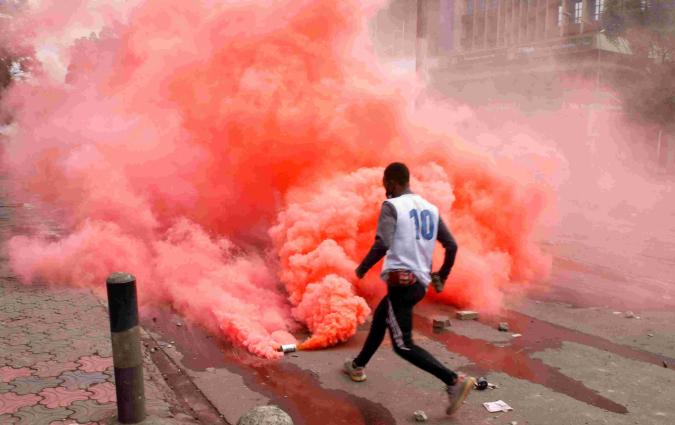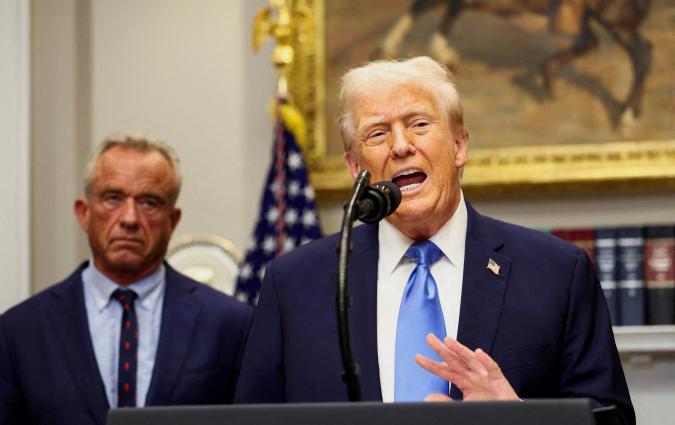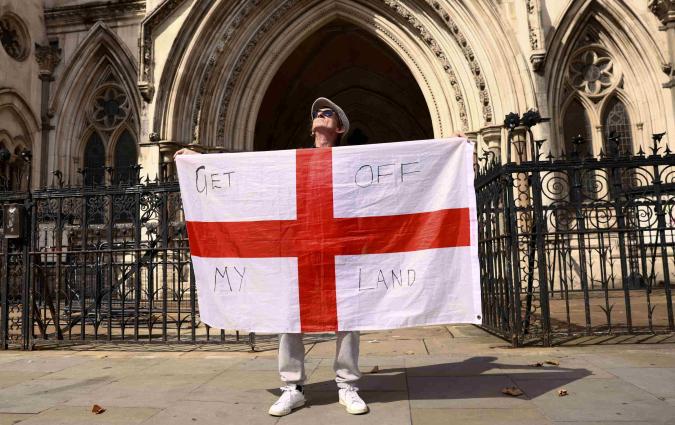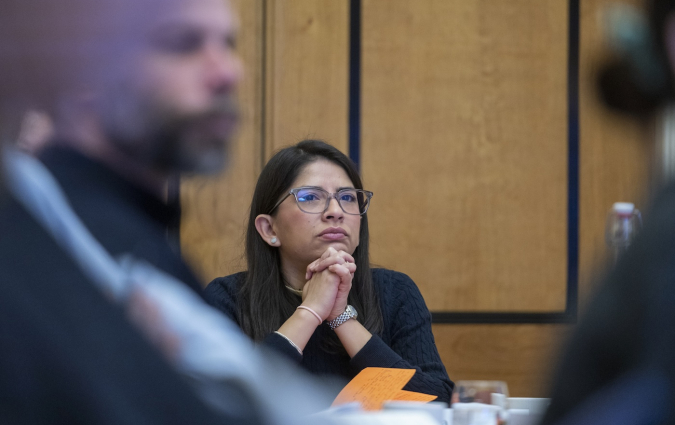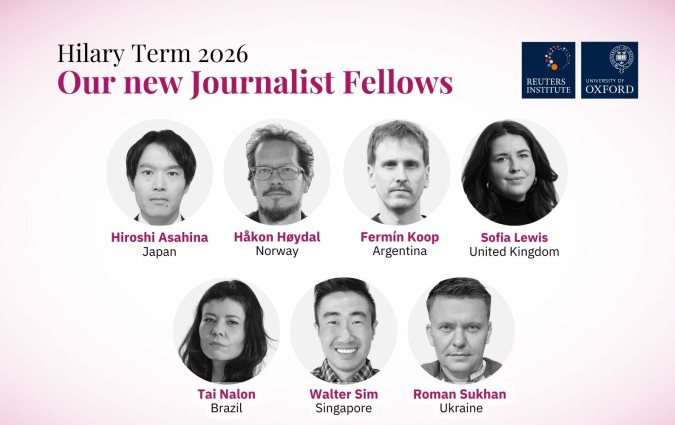How the BBC fact-checks celebrity deaths (and other prominent news stories)
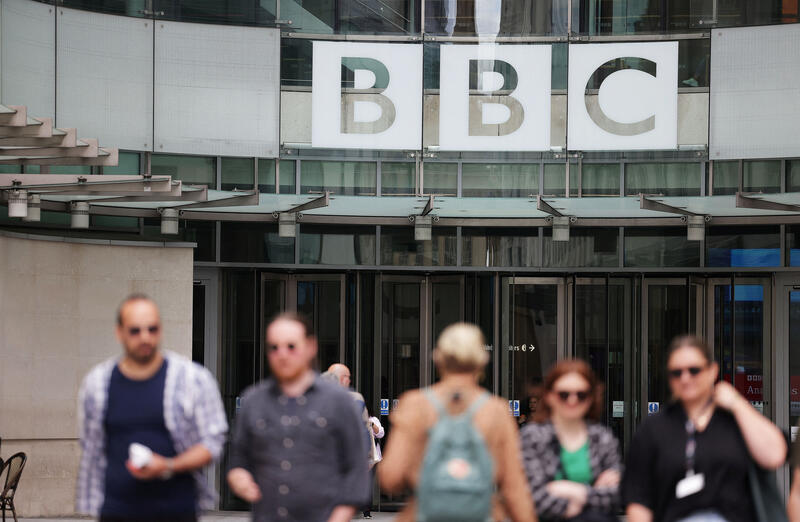
When BBC Senior Reporter Daniel Rosney was assigned to verify the death of a social media personality, he did not anticipate the assignment was going to take over 10 hours.
The star in question was Lil Tay, a Canadian teen rapper/social media star who rose to brief fame by posting pictures and videos of herself with luxury cars, designer clothes, and stacks of cash when she was just 10 years old. After retreating from the limelight for years, earlier in August a post on Lil Tay’s Instagram account announced that she had died.
A flurry of tabloids and news organisations began cautiously reporting on the death of the young teen, citing this Instagram statement. One day later, though, Lil Tay came back to life blaming the hoax on a third party. While many media organisations had to backtrack and report on the death hoax, Daniel, and BBC News, never had to. A Twitter thread Daniel published about that decision ended up going viral. I spoke to Daniel about the BBC’s verification process and walking audiences through editorial decisions to foster trust in news. Our conversation has been edited for length and clarity.
Q. When you were assigned to verify a story like the one on LilTay, what steps did you go through to confirm if it is true or not?
A. In this particular case, I was unfamiliar with who Lil Tay was. So I looked at how the news publications were reporting the “death” to see where they were getting their sources from, and where they had cited confirmation of death. That’s how I noticed that nobody really had anything other than what was posted on the Instagram page of Lil Tay.
There was a contact email on Lil Tay’s Instagram account so I sent an email to that address. I offered my condolences and said I just wanted to confirm that what was being posted was true. I asked for a response and also a number to contact somebody because I always speak to somebody on the phone to confirm it.
The BBC and other media publications have access to a database with the management of celebrities or well known people essentially to find contact details for press officers and there was nothing for Lil Tay. I suspect that's because they haven't been in the public eye for a number of years, which added more complications to things. Ordinarily, there is often somebody to phone or an email address, and we can confirm a death. So when I was assigned to this story, in my head, I was like ‘this will be done in 30 minutes,’ I didn't anticipate it would take 10 hours of my day. It was a bit strange that nobody seems to have spoken to anybody to confirm this.
Because I’d been researching who Lil Tay is, I found out that they had links with both Los Angeles and Vancouver, so I contacted authorities in Canada and the US. Often in my experience, media departments of police forces are always helpful. They were unaware of any sort of deaths matching this description of a 14-year-old and in that scenario, police would be called.
Meanwhile, there was a little bit of pressure that I was putting on myself, which is often unhelpful. But that's the nature of being a journalist: everybody else has reported this, and you've been assigned a task and you can't get the facts to report accurately, which is the BBC's job.
I just had to keep turning to the desk editor that day to say, ‘I have nothing.’ As a journalist, you want to be able to say, ‘I have all of the things, I have confirmed everything.’ But I just couldn’t and it just started to smell a bit fishy to me.
Lots of people didn’t know who Lil Tay, but this death was trending that day probably due to the very nature of a child star. So, this was causing an increase in search traffic which is, unfortunately, how a lot of media organisations now decide what stories that they should be doing and where their priorities lie, because they're all trying to get all of this search traffic.
Lots of other media organisations were speculating about how Lil Tay may or may not have died, and the mystery surrounding their death. There was a conversation of whether or not we should be doing something like that, but that conversation was very short. We realised that wasn't the BBC’s place to be.
Q. At what point does a story like this become reportable for the BBC?
A. Most people don't realise or understand that it is in [BBC News’] guidelines that we need two sources on a story. That is because you need a verification of what you've heard is true. A death wouldn't be reportable purely based on something that was posted on Instagram.
There has been an ongoing debate for journalists about using social media posts as statements. Traditionally, especially when I was learning to be a journalist, you would always get official statements from press officers. But now, if presidents are tweeting, you have to take that as an official statement. But when it comes to a death, especially on an inactive account, that was, for me, an alarm bell.
On certain social media platforms, you can now edit posts, and for a long time, that was not possible. That can be an issue where you may report something that a politician has said on social media, you report it, and then they might edit their post, so it looks like that you've taken something they've said out of context. So I think that there will be some issues with technology and statements in the future and I'm not quite sure that journalists and social media have quite got there yet with having an archive of different layers of what was said and when.
Q. You contacted her management and the police in multiple jurisdictions, and you got no information whatsoever. When would you decide to just move on from the story?
A. Anybody who has a passion for journalism wants to get the story over the line. So amongst doing other things, I was constantly chasing, but waiting for the police to get back to me or for the management to confirm something. So you are doing other things. But this is always on your to-do list.
As I said, there was a temptation earlier in the day to do a story or go on air and talk about the mystery surrounding whether or not somebody has died. But because [Lil Tay] is an internet star who hadn't been in the limelight for a number of years, more people were searching for ‘who is Lil Tay?’, ‘how did Lil Tay die?’ rather than asking where the confirmation is coming from.
The BBC is more than ever lifting the lid on how it verifies news stories, not just with celebrity deaths, but with satellite imagery, with the ongoing conflicts in Ukraine and with emergencies that are happening around the world in Morocco and in Libya, and sort of explaining how they can prove that these images are true.
It can be frustrating to see how other publications and social media accounts just want to be first for the hits, but aren't accurate. Sometimes, unfortunately, a journalist's job isn't always proving something is true but proving something isn't true.
Q. There is a lot of emphasis in journalism about being first. As you mentioned, other publications did end up reporting that Lil Tay was in fact dead which they later had to retract. What do you see should be the balance between timely reporting and having all the information?
A. The BBC isn’t a commercial broadcaster in the UK so it isn't relying on revenue from online advertising. Some other news publications and social media accounts want to be first because they want to get higher up on Google search traffic so that they get more ad revenue.
It's hard because this was a rare story. If something is posted on a social media account, it is often true. But that's not always the case. I am definitely a cautious journalist. I think journalists are being held to account more than ever, and that is because users, audiences, listeners and viewers have access to reporters in more ways than they used to. But this can also lead to people being abusive or questioning the validity of a story.
This has encouraged me to always ensure that I've dotted my Is and I've crossed my Ts. I can only speak for the BBC but our priority is to be accurate and to be a trusted news source around the world.
Q. You have over 10 years of experience with the BBC. What do you think will be the growing challenges of verification, not only with social media, but also the advent of AI?
A. One of the main concerns going forward is that some sources – whistleblowers, or just people who ordinarily would talk to the media – now might think twice because if they want something out there, they can create a Twitter account anonymously and post about anything. But I think the benefit of speaking with journalists is that we have trust from audiences and can say we have verified this account and we're protecting our source.
AI will create new questions for audiences about whom to trust online. That's why news organisations are really important in continuing to be that sort of beacon of light – because all it will take is a politician saying something that they maybe shouldn't have said, it being recorded, the media publishing it, and then that politician saying, ‘I didn't say it, it's AI.’
It's going to become a lot harder for listeners, viewers and readers to automatically trust a news source, because that seed of doubt will always be there. News organisations have to build and maintain the trust that they have with audiences.
Q. How do you think journalists can build trust with audiences?
A. Explaining [how we work] to audiences is going to be one of the key things over the next couple of years. Audiences want to understand how editorial decisions are made in a newsroom, to understand how things are verified and checked and how we use sources.
It's up to us as journalists, I think, to make those editorial calls about what information we use as part of our storytelling, and explaining why we have chosen to use a specific person. For example, explaining that we're using this person's analysis because they used to do that job, or the reason this person wanted to remain anonymous is because they are scared that they might lose their job if they speak out.
Our job is to inform, but it's also to educate. Those two things are different but they do come hand in hand. By doing that, you will build a trusted brand, either yourself as a reporter or the organisation you work for. People will read, listen, watch your stuff in the future and trust it. That, for me. is the main thing when it comes to journalism
In every email we send you'll find original reporting, evidence-based insights, online seminars and readings curated from 100s of sources - all in 5 minutes.
- Twice a week
- More than 20,000 people receive it
- Unsubscribe any time


